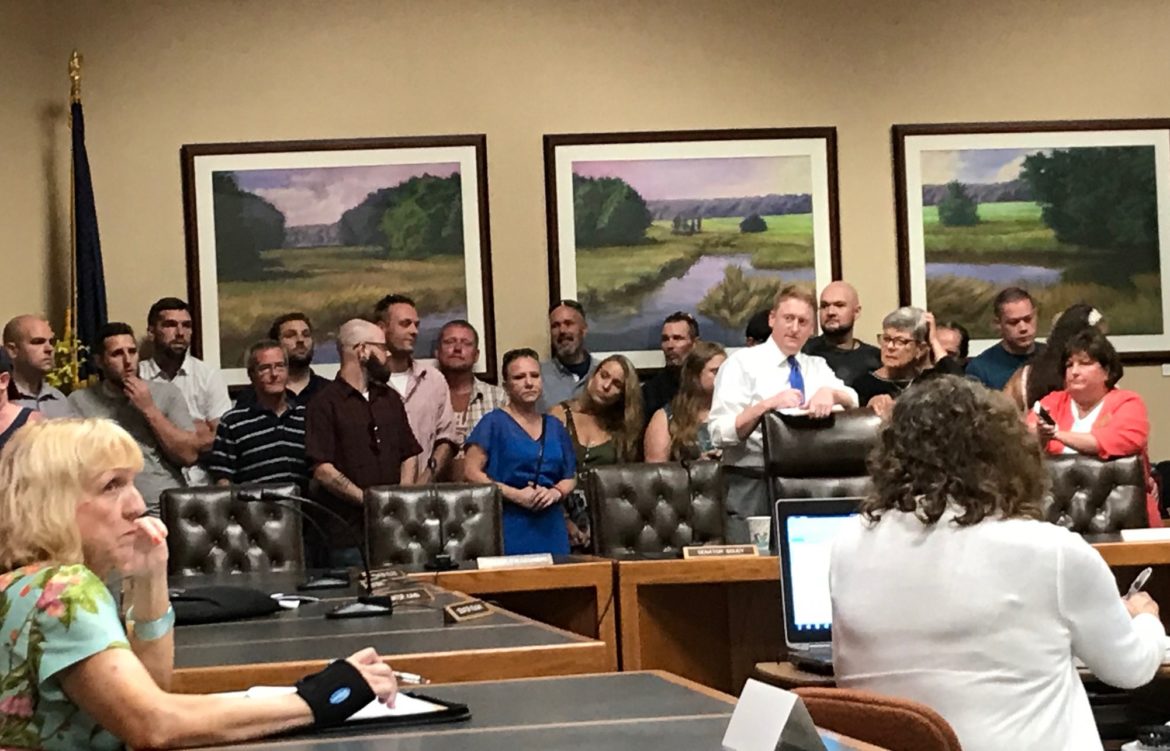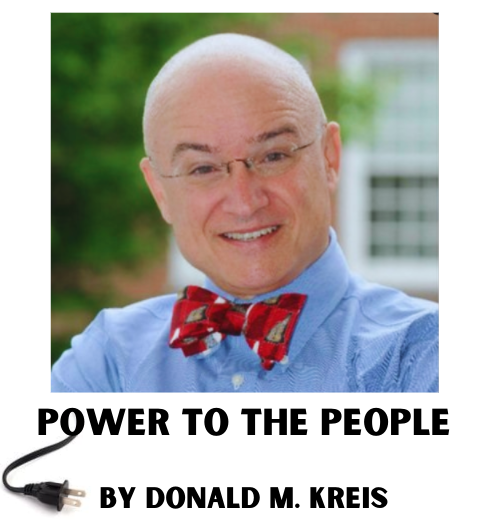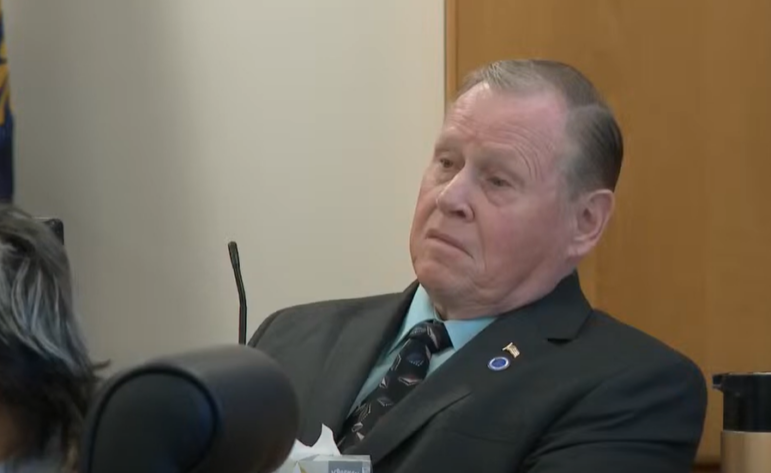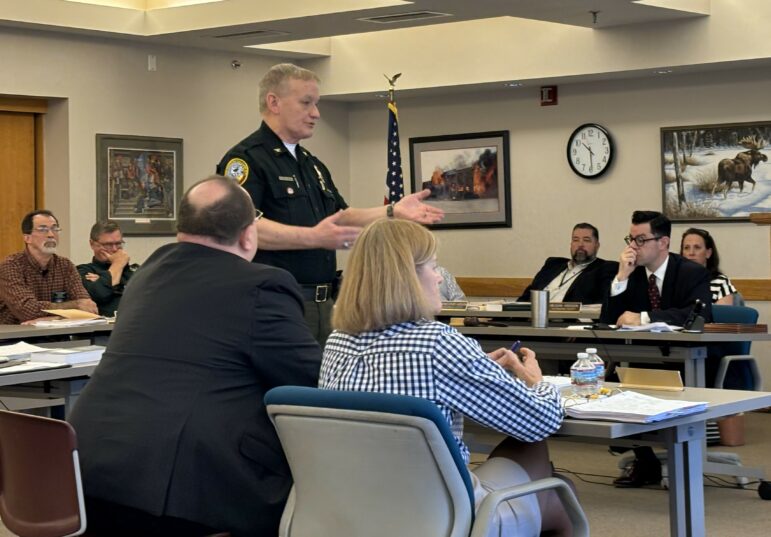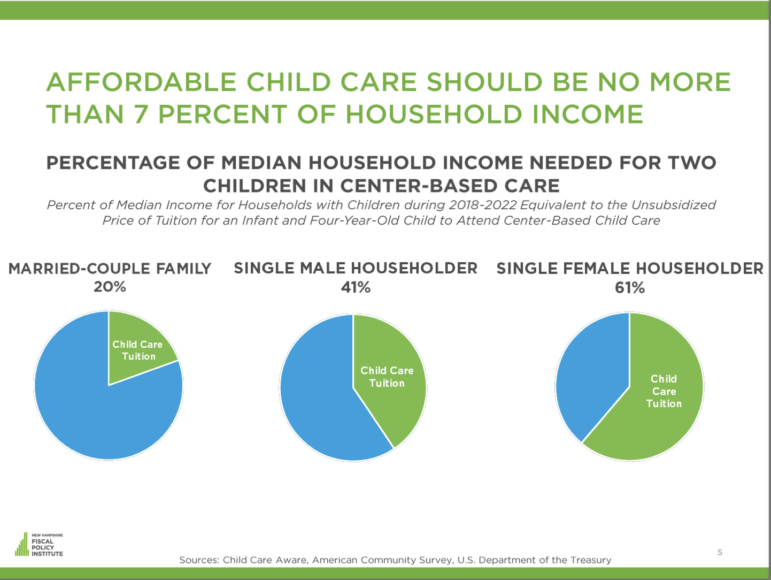By GARRY RAYNO, InDepthNH.org
CONCORD — From opioid addiction recovery to women’s health-care services, advocates, patients and officials packed a hearing room to tell budget writers Thursday why the state needs the operating budget Gov. Chris Sununu vetoed.
Advocates said the legislatively approved $13.3 billion operating budget began to address some of the state’s chronic underfunding for services such as personal care attendants, reproductive services, housing and residential beds for those in substance abuse recovery.
And they said the governor’s veto is forcing them to make hard decisions about staff and services unless there is a quick resolution.
The state government is currently funded through a three-month continuing resolution allowing state agencies to spend one-quarter of their authorized appropriation for the recently completed 2019 fiscal year.
The three-month continuing resolution approved at the end of June by lawmakers and the governor will not allow new mental health services like a children’s mobile crisis unit, and voluntary and parental services to be in place, the advocates said at the legislative hearing.
Political Maneuvering
The political maneuvering over the budget veto and current impasse was on display Thursday with House and Senate budget writers holding the first of three hearings on the “real life” effects of the budget veto, said House Finance Committee Chair Mary Jane Wallner, D-Concord.
The three hearings will focus on health and human services, education and other impacts to other agencies and have been scheduled for about a month.
Gov. Sununu Wednesday released his Thursday schedule including a meeting with business executives from throughout the state to discuss the budget impasse, as he did with municipal officials last month.
The governor’s meeting with about 20 business executives was held at the Business and Industry Association offices across the street from the State House, while more than 100 people packed Rooms 210-211 of the Legislative Office Building for the legislative hearing.
Farnum Center
Easter Seals’ Farnum Center patients, graduates, staff and administrators came en masse to testify and pleaded with budget writers to maintain the funding included in the budget for promised rate increases for addiction treatment and an across-the-board 3.1 percent increase each year for Medicaid providers.
“Proper funding saves money in the long run. It makes our streets safer,” said staff member Jeff Furlotte, a former addict. “Too many people in this state die every day and it affects me. They are human beings, they are the future of our country.”
Dr. Cheryl Wilkie, Farnum’s chief operating officer, said she has been in recovery for 30 years. “Everybody here has all the potential I have,” she told the committee. “I will fight this battle until I die.”
She noted when the Medicaid expansion program changed from private insurance providers to the state’s traditional Medicaid system, mental health/substance abuse service providers were promised a rate that was sufficient to keep facilities operating, noting the reimbursement rate for one service fell from $650 to $156.
“We
have been hanging by a thread,” Wilkie said. “We want the program to keep
going, but we will have to decide what we will close.”
She was
critical of the new spoke and hub program announced last year for treatment,
saying it funded collecting initial information but there are not enough
treatment beds to address the needs of all the people seeking help.
She was critical of both the legislature and the governor for the lack of support for treatment and recovery programs.
Several of the patients at Farnum Center testified the program helped save their lives and asked budget writers to increase the Medicaid rates for treatment.
Women’s Health
Officials from Planned Parenthood of Northern New England said they are using emergency funds to continue providing family planning services because they and other providers are refusing to take federal funds requiring they adhere to a Trump administration imposed “gag rule” prohibiting any information on abortion, the organization said, and prohibiting it from offering options to patients that include abortion.
Sabrina Dunlap, vice president of public policy for Northern New England, said the practice is not sustainable and the organization needs the money included in the budget to replace the federal Title X money the gag rule affects.
Senate Finance Committee member Cindy Rosenwald, D-Nashua, asked if doctors are typically asked to pay for the care of their patients, and Dunlap said,“No I don’t think so, but we are as family planning providers.”
She said being unable to access the $1.6 million in each year of the two-year budget will eventually affect the organization’s ability to provide these services and puts poor women at risk because they are not allowed to even discuss abortion.
Dunlap also noted the continuing resolution is also impacting services related to birth control, testing and treatment for sexually transmitted diseases and cancer screening.
Services for the Disabled
Jeff Dickinson, advocacy director for Granite State Independent, said there are a number of items in the budget that directly impact him and his organization.
He said the personal care services he receives helps him get out of bed and dress each morning so he can go to work.
But he noted the reimbursement rate is so low it is difficult to find people to provide the services.
“Without these services our lives would basically stop,” Dickinson said. “If that happens, the expense for the state will be far greater if I am in a nursing home.”
HHS Commissioner
The first hour of the hearing Democratic budget writers grilled Health and Human Services Commissioner Jeffrey Meyers over a number of issues as they tried to determine what programs will remain under the continuing resolution and what new services will not be available because the budget was vetoed.
In many cases, Meyers said, the new programs would need to be developed and people hired so there would not have been any expenditures in the first quarter of the 2020 fiscal year.
But Senate Majority Leader Dan Feltes, D-Concord, pushed Meyers to say how many child protection workers have been hired that were approved outside the operating budget.
But Meyers said they are currently trying to recruit the case workers and supervisors.
“While Gov. Sununu was once again holding a non-public meeting on the budget, this time with corporate special interests, the House and Senate held a hearing open to state agencies and members of the public,” Feltes said after the meeting.
“Corporate tax breaks are not more important than the health and well-being of New Hampshire citizens.”
The second hearing on the budget veto will be held Aug. 13 at 10 a.m. in Rooms 210-211 of the Legislative Office Building.
Garry Rayno may be reached at garry.rayno@yahoo.com
